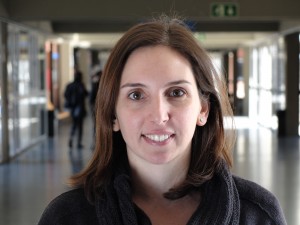 Marta Curto-Grau, researcher at the Institutions and Political Economy Research Group (IPERG), has been awarded a Marie Skłodowska-Curie Individual fellowship. From September 2017, she will develop her research project “Politicians’ traits and public policies: learning how personal features influence fiscal outcomes.” The funding will allow her to examine whether particular features of politicians may be relevant determinants of economic outcomes and policies. This approach shifts the focus of attention from political parties to individual legislators and will contribute to the understanding of how individual traits of politicians affect public policies.
Marta Curto-Grau, researcher at the Institutions and Political Economy Research Group (IPERG), has been awarded a Marie Skłodowska-Curie Individual fellowship. From September 2017, she will develop her research project “Politicians’ traits and public policies: learning how personal features influence fiscal outcomes.” The funding will allow her to examine whether particular features of politicians may be relevant determinants of economic outcomes and policies. This approach shifts the focus of attention from political parties to individual legislators and will contribute to the understanding of how individual traits of politicians affect public policies.
Early studies on political economy have focused on institutional factors, voters’ preferences, interest groups, and party ideology as major drivers of public policies. These studies often treat parties as homogeneous units. In contrast, this project takes into consideration the heterogeneity of its members in several dimensions -in particular, the politicians’ commitment to the party line (i.e. party discipline), and the education of politicians.
Curto-Grau obtained her PhD in Economics from the Universitat de Barcelona in 2013, after which she joined the University of Heidelberg as a postdoctoral researcher. She is currently a researcher at the Institutions and Political Economy Reseach Group (IPERG), directed by Professor Carles Boix. The ERC-funded group studies the role of institutions on the emergence of political order and stability, the political representation of individual and social interests, and economic development and redistribution.
The Marie Skłodowska-Curie Actions, named after the double Nobel Prize winning Polish-French scientist famed for her work on radioactivity, support excellent researchers at all stages of their careers. The goal of the Individual Fellowships is to enhance the creative and innovative potential of experienced researchers, wishing to diversify their individual competence in terms of skill acquisition through advanced training, international and intersectoral mobility. The actions are a key part of Horizon 2020, the EU’s research and innovation programme.